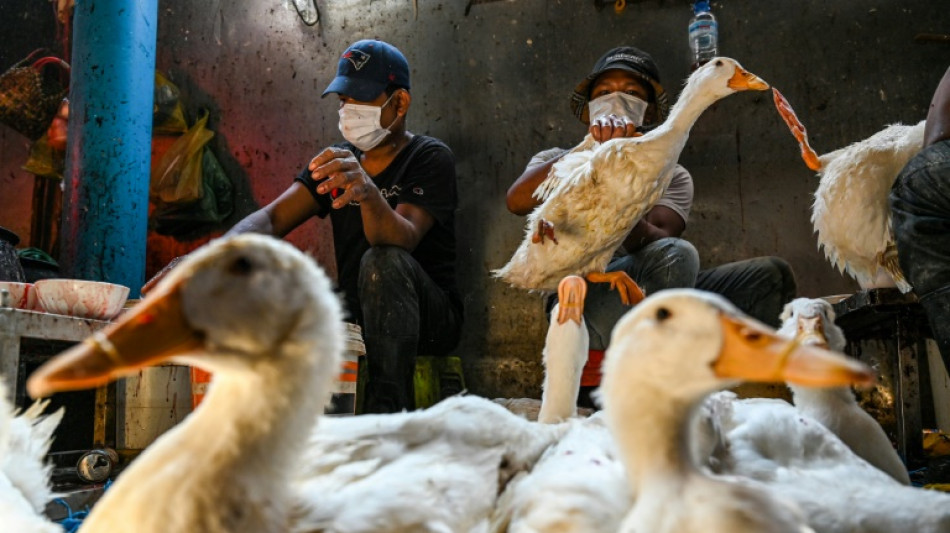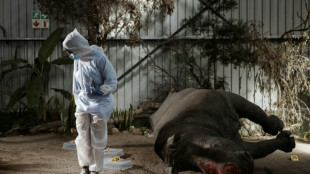

WHO concerned about bird flu after girl's father tests positive
The World Health Organization said Friday it was concerned about bird flu after the father of a 11-year-old Cambodian girl who died from the disease also tested positive, raising fears of human-to-human transmission.
Since late 2021, one of the worst global avian influenza outbreaks on record has seen tens of millions of poultry culled, mass wild bird die-offs and a rising number of infections among mammals.
In Cambodia, the girl fell ill on February 16 with a fever, cough and sore throat, and died on Wednesday from the H5N1 bird flu virus, according to the health ministry.
Authorities then collected samples from 12 people who had been in contact with her.
On Friday, the authorities said the girl's 49-year-old father had tested positive, adding that he was asymptomatic.
The WHO said it was in close contact with the Cambodian authorities about the situation, including regarding the test results of the girl's other contacts.
Humans rarely get bird flu, but when they do it is usually from coming in direct contact with infected birds.
Investigators in Cambodia are working to establish whether the girl, her father and the contact cases were exposed to infected birds.
Officials are also waiting for test results from several dead wild birds found near the girl's remote village in the eastern Prey Veng province.
- 'Worrying' -
"So far, it is too early to know if it's human-to-human transmission or exposure to the same environmental conditions," Sylvie Briand, WHO epidemic and pandemic preparedness and prevention director, told a virtual press conference.
Earlier this month, WHO chief Tedros Adhanom Ghebreyesus said the risk of bird flu to humans was low, and Briand emphasised that this assessment had not changed.
But she added that the UN agency was waiting on information from Cambodia to see if this assessment needed to be updated.
"The global H5N1 situation is worrying given the wide spread of the virus in birds around the world, and the increasing reports of cases in mammals including humans," Briand said.
"WHO takes the risk from this virus seriously and urges heightened vigilance from all countries," she added.
So far, cases of bird flu in humans had been "sporadic", Briand said.
"But when you see that there are a number of potential cases surrounding this initial case, you always wonder what has happened: is it because maybe the initial case has transmitted the disease to other humans?
"So, we are really concerned about the potential human-to-human transmission coming from this initial spillover from animals."
- 'Tragic' -
If bird flu transmission is confirmed to have taken place between humans, WHO said a series of measures could be put in place fairly quickly.
For example, there are nearly 20 H5 bird flu vaccines licensed for pandemic use, the WHO said.
But Richard Webby, head of the WHO's centre for studying influenza in animals, estimated it could take five or six months to update and produce such a vaccine for the currently circulating strain of H5N1.
The latest infection is the 58th recorded instance of bird flu in Cambodia since the country's first human case was discovered nearly two decades ago.
"Tragic though this case in Cambodia is, we expect there to be some cases of clinical disease with such a widespread infection," said University of Cambridge veterinary department head James Wood, referring to the outbreaks among birds.
"Clearly the virus needs careful monitoring and surveillance to check that it has not mutated or recombined, but the limited numbers of cases of human disease have not increased markedly and this one case in itself does not signal the global situation has suddenly changed."
Over the last two decades, there have been nearly 900 confirmed H5N1 cases in humans with more than 450 deaths, according to the WHO.
The death rate for humans with H5N1 is "over 50 percent," Briand said.
A nine-year-old girl in Ecuador who contracted bird flu last month has "recovered and is out of the hospital" and is on antiviral medication, she added.
M.Tran--RTC



